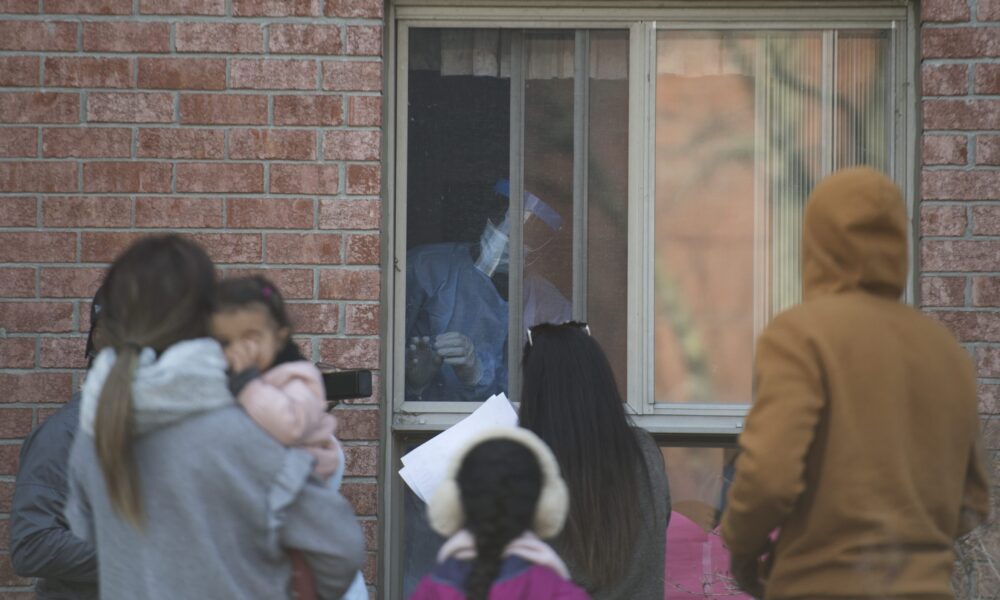The Omicron wave is exposing and exacerbating a pre-existing crisis in Quebec: The failure to invest in long-term care (LTC). Throughout the pandemic, Quebec has seen disproportionately high COVID-19 death rates among its senior population, particularly those residing in long-term care and housing facilities (CHSLD), or LTC, facilities. During the pandemic’s first wave, Quebec reported nearly 4,000 deaths in CHSLDs, a figure constituting almost 70 per cent of all provincial deaths. Though the issues contributing to these outcomes pre-date the pandemic, with cases surging, the lack of regulation has become all the more clear. The alignment of public opinion and political pressure, combined with the emergence of the Omicron variant, make transformative approaches to policy possible and necessary. The Quebec government must seize this opportunity to reform the LTC sector and respond to demands for higher standards in CHSLD facilities.
Provincial funding debates and national healthcare commissions have continuously neglected long term care. The sector’s designation as an extended care service under the Canada Health Act has prevented sufficient data collection for tracking service practices and facility updates. Nevertheless, the fatal consequences of unchecked standards have surfaced throughout the pandemic: Outdated, overcrowded facilities are reporting the highest COVID-19 outbreaks and hospitalization rates, which experts trace to long waitlists for CHSLD accommodations and the province’s insufficient bed supply. The government has attempted to address this issue by creating makeshift rooms in private nursing homes, forcing families to pay for care out of pocket. However, these short-term arrangements compromise safety standards while shifting the burden of care disproportionately onto female relatives, as well as immigrants, who constitute one third of Canada’s personal support workers (PSWs). Premier François Legault has praised the valiant efforts of healthcare workers, but without a financially supported commitment to improve CHSLD conditions contributing to the virus’ transmission, his statements lack the sincerity and evidence needed to restore public faith in the LTC system.
As the province faces several large-scale issues such as the housing crisis and costly vaccination campaigns, LTC is just one of many areas demanding funding from a limited fiscal pool. Nevertheless, with nine CHSLDs designated under Quebec’s red zone as of December 31, and with high Omicron infection rates among seniors, Quebec cannot afford to prolong momentous policy solutions.
Political pressure from the Bloc Quebecois is also stifling Quebec’s LTC policy reform. To address overcrowding and service negligence, policymakers across Canada have proposed viable options such as attaching an LTC benefit to national pension plans, establishing an infrastructure bank to challenge private sector monopolies, or creating an immigration stream dedicated to PSW recruitment. However, despite the province’s inability to independently fund the necessary changes, the adoption of policies emphasizing federal assistance is unlikely—Bloc Quebecois leader Yves-François Blanchet accused Ottawa of using the pandemic to strengthen its national grip over provincial jurisdictions. Quebec’s leaders must decide what to prioritize: The province’s suffering senior population or fabricated threats to provincial sovereignty.
The complex combination of factors fueling Quebec’s crisis makes immediate sector-wide revamps unrealistic. Still, Quebecers are justified in demanding that formal steps be taken to address LTC issues typically overlooked in provincial political agendas. Even if immediate infrastructure projects are unfeasible, Quebec could start by following B.C.’s approach, which restricts LTC workers to one residence to minimize infection transmission and gives all staff full-time public employee status rather than union worker status. Without confirmation of increased sector funding, and the public still awaiting a testimony on deaths within CHSLDs from Quebec’s Senior Minister, accusations of the government’s disregard for residents in the long term care system may be more warranted than Legault cares to admit.
Given Omicron’s rapid transmission rates, prohibiting family visits in CHSLDs is scientifically sound. However, when the same government has continuously refused to address long-standing, sector-wide issues contributing to preventable deaths, moral justifications for civil disobedience gain traction.
Setbacks caused by the Omicron variant demand faith in public institutions. If Quebec’s government fails to respond to cries for LTC policy reform in this critical moment, they can count their opportunity to learn from pre-pandemic mistakes wasted.








